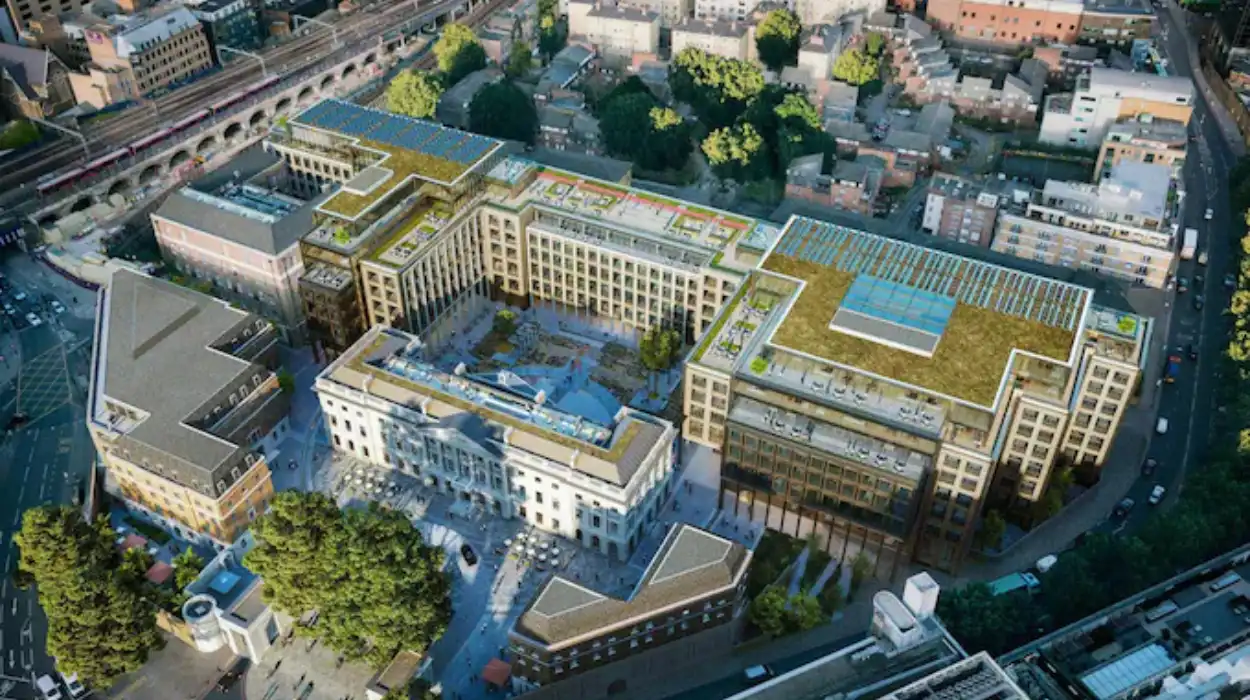UK (Parliament Politics Magazine) – Sir Keir Starmer is under pressure as China’s embassy proposal near Westminster faces local opposition, and this plan could affect UK-China relations.
The discussion between the British Prime Minister and Xi Jinping has made the UK and China’s relationship stronger than they have been in years.
Sir Starmer wants to show his target of creating “steady, lasting,” and “respectful” relations with China. During last month’s G20 summit in Brazil, he was the first British PM in six years to meet with Xi. Afterward, Xi spoke about starting something new in trade relations.
As reported by The Telegraph, tensions are rising over China’s proposal for a new “super-embassy” just three miles from Westminster, a matter Xi discussed with the Prime Minister, which could risk the progress in their relationship.
With growing local resistance to the embassy, Britain’s PM finds himself in a tough spot, whether to stop it and risk upsetting China or approve it and anger the United States.
The planned Chinese embassy at the Royal Mint Court, close to the Tower of London, would become the nation’s most significant diplomatic mission in Europe.
If the proposal is approved, the new facility would be over ten times the size of its present embassy in Marylebone, with offices, 225 homes, and a “cultural exchange” center. The property was already bought by China’s government for over £255 million about six years ago.
Significant opposition to the proposed embassy has come from Tower Hamlets Council, the Metropolitan Police, politicians from various parties, and local residents. They fear it could pose risks to public safety.
The council, controlled by the independent Aspire party, rejected the plans for the second time this month. It will present its objections at an investigation before Housing Secretary Angela Rayner makes the final decision.
After the council rejected Beijing’s plans two years ago, it was assumed the proposal had been given up, especially as the Conservative government was expected to support the refusal. But, after Labour took office last July, the same application was submitted again.
The former Conservative leader Sir Iain Duncan Smith, who is sanctioned by China, stated,
“The Government’s slightly got itself up a blind alley because the council has turned it down. If they now take it up and then give [China] the embassy, it looks craven. It looks like that was their intention all along.”
Mr Smith pointed out that Deputy PM & Housing Minister Rayner is likely to face significant pressure from Downing Street to reject the council’s request.
Ms Rayner took over the plans in October, just after Foreign Secretary David Lammy returned from China. The prime minister Keir Starmer stated last month that Xi asked him directly to involve the minister during a phone call.
Matthew Pennycook, the housing minister, confirmed in response to shadow housing minister Paul Holmes that David Lammy and Simon Hart, linked to Innovate UK, had urged Ms Rayner’s department to handle the matter.
Officials representing the embassy proposal team have rejected accusations of trying to override the council.
The Ministry of Housing, Communities and Local Government (MHCLG) representative stated,
“Applications for a new Chinese embassy in Tower Hamlets have been called in for MHCLG Ministers to decide. A final decision will be made in due course.”
Recently, UK-China ties had declined, following alerts from British intelligence and security agencies about rising espionage efforts. Last May, a GCHQ director warned that this “poses a genuine and increasing cyber risk.”
The proposed embassy is expected to face backlash from the incoming Republican administration in the US, with Donald Trump’s selections, especially with prominent figures like the hawkish Marco Rubio as secretary of state and Mike Waltz as national security adviser.
Meanwhile, the British prime Minister is spending his first break since taking office in July. In August, he planned to take a holiday but postponed due to riots.


